|
The Provincial Agreement has been signed. This means that there are sixty calendar days until our retro payments are due, making their deadline August 9th, 2024. If this deadline is not met, interest will begin to accrue from this date.
How do you know if your retroactive pay is correct? A couple of points:
For example, a High School teacher was on parental leave. For the weeks where only QPIP was received, no retroactive salary will be paid for this period. There was no salary from the school board earned during that period, to be subject to the pay increases. For the period where she was back at work, retroactive pay will be calculated. Another example would be a part-time teacher who had two weeks of no work between contracts within a year. This teacher would not earn retroactive pay for those two weeks of not working, so their payout would be lower by 5% (10 days out of 200 not worked). There was an increase in substitution rates. Therefore, casual supply will generate a retroactive payment. The provided calculations have two red columns, one for each raise that occurred. The second red column accounts for the fact that the retroactivity from April 2024 is only for 8 of a year’s 26 payments, not a full school year. The total of these two columns is the teal column at the far right, which is the approximate gross* repayment that someone on that step can expect, based on a full 100% workload. *Gross amounts calculated are before any deductions are made. All retroactive payments will be subject to all deductions usually taken off of every paycheck (varies by teacher).  Now that the agreements have been signed, there are 60 calendar days for the retroactive payments. This corresponds to August 9th, 2024. Any payments made after this date will be subject to interest accruing from August 9th, 2024.  We are all waiting for 4 things with bated breath:
Wheeeeeeen! Salary Increase: 1 or 2 pay periods after signing Retropay: 60 calendar days after signing Insurance contributions: Happening as we speak! There is a SNAFU as the government and the Commun Front fight over whether the contribution should only be 50% for any teacher working less than 75%. It has been temporarily resolved as the insurance company has no idea as to a teacher’s contract percentage. As such all members will receive a monthly premium reduction that corresponds to your family status as declared to IA. These deductions should take effect June 1st, 2024. The premium deduction will be revisited in January of 2025. The government is still pushing for their contribution threshold. However, we all pay full premiums and should receive full applicable coverage regardless of employment status. In light of this the Commun front is still pushing for the original union understanding of the promise to be upheld. Signing!?! Yep, we agreed to a deal in principle, but as the insurance issue above highlights, that’s not every little detail. Our negotiators are working on every little detail as we speak. Checking every preposition and comma to guarantee no sneaky little changes are enshrined in the text. Our QPAT negotiators are hopeful that the signing will take place in early June, but can’t make promises with accuracy and our rights being more important than speed right now. So, again like when then! Best case: Sign in Early June Salary: Mid June Retropay: End of July Worstish case: Sign in Late September Salary: Mid October Retropay: Late November/Early December STRIKE PAY ERRORS There were plenty of them. Enough of them there was no way the board would fix them all within the 40 day grieving window. So, RTU along with nearly all local unions has filed a grievance in regards to the equity of how strike pay was administered. So when will it be fixed? After the grievances go to the Labour Court, a judge decides whether strike pay was applied in an equitable manner. The school board is awaiting this decision before they implement any solutions. A date? At last check, grievances took around a year to be heard. Grieving is not a fast process. In this situation due to the extensiveness of the issues and the unlikelihood of it being solved within 40 days, RTU had no choice but to grieve. Why so long? The courts system is not known for its speedy resolution of cases in any branch of law. Labour law is no different. This is why local unions, RTU included, focus on local negotiated solutions so much. As slow as those negotiations are, they are almost always faster than the legal system. Hopefully a local solution will be found to this issue as well. 40 days? A grievance must be filed within 40 working days of the cause. After the 40 days it’s a done deal and the union or individual cannot grieve a situation anymore. If there is a non-antagonistic relationship between a local union and a school board, issues can be dealt with and settled outside this window.
The commun front has released a document outlining the new agreement. Here are some highlights. Find the complete document here.
Strikes of any length are a burden to the workers. The brunt of the “economic” damage is felt by us, the strikers. The point of a strike is to inconvenience other people. This inconvenience helps remind the government why we are important. The inconvenience also reminds the employer of our power as workers.
The exercising of our power does not come without a financial cost. RTU staffers recognize this, and share it. The RTU president and executive assistants are not paid for strike days. We are part of the negotiating block and stand in solidarity with you, for the good and the bad. RTU members (teachers) may need to have replacement income during longer strike actions. This is completely understandable. It is also common during prolonged strikes throughout unionism. Many workers in other industries understand and commiserate with the hardships we are facing. They have lived these experiences and support us. There is no shame or recriminations for requiring another job during a strike. We ask that it not be in education as that is strike breaking. This includes private tutoring, homework assistance and anything else being recommended to parents to “ameliorate” the strike effects. Regardless of what other work an RTU member chooses to do during the strike actions, we ask that members continue to come to the demonstrations that they can attend. The demonstrations will be at scheduled times. Generally they will last a maximum of 3 - 4 hours a day. We focus on commute times for maximum visibility. We also coordinate with the other locals working for RSB in the Commun Front. Attending these events even for only part of the time helps our negotiators. If we lose people on the lines, the government takes it as a sign that we are weakening and that they can continue to insist on bad deals for us. RTU hopes that these reasons have convinced you to attend the strike actions we organize and to find work outside the educational field. That is the extent of our power over you. There are no mechanisms for RTU to punish or coerce anyone. We trust you to make the best possible decisions when you have been given all of the facts. We trust you to support the office agents, custodians, technicians and attendants that help us in our classrooms and schools. We trust you to show the government our strength. See you on the lines. |
�
Archives
June 2024
Categories
All
|
||||||||||||
RTU-SER10 Boul. Churchill, Suite 201,
Greenfield Park (Québec) J4V 2L7 |
|



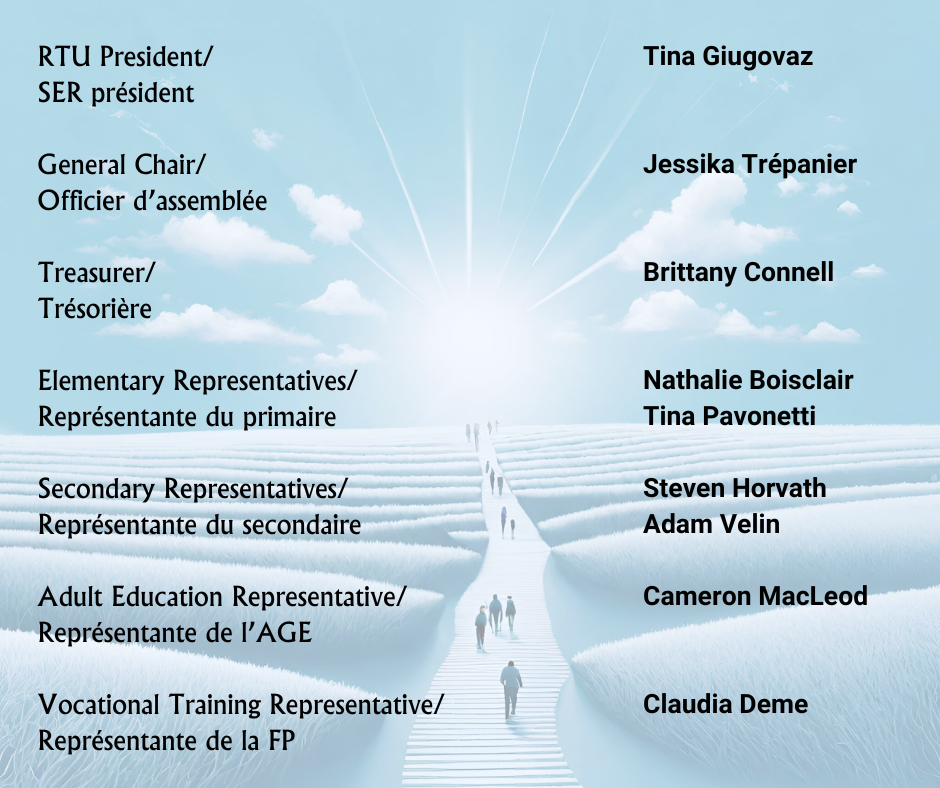


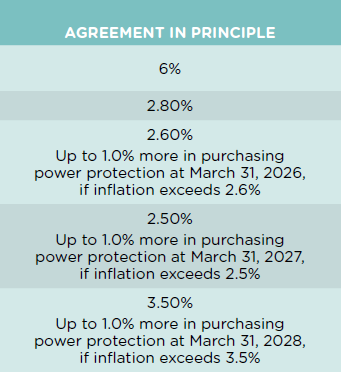

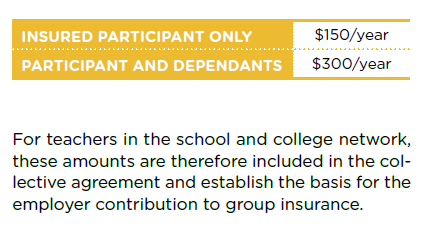
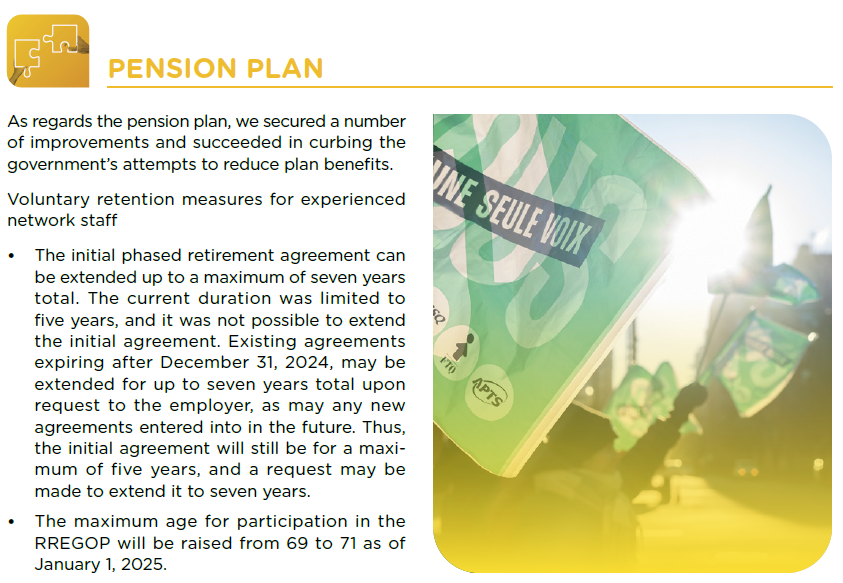
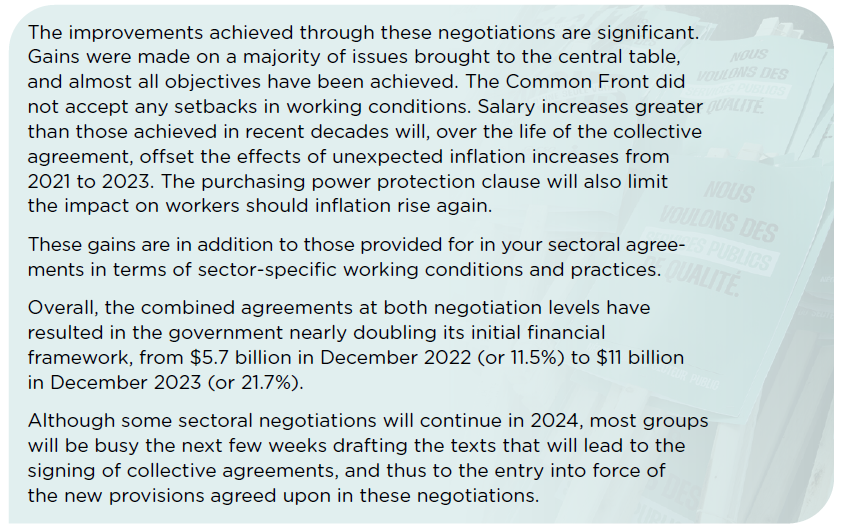

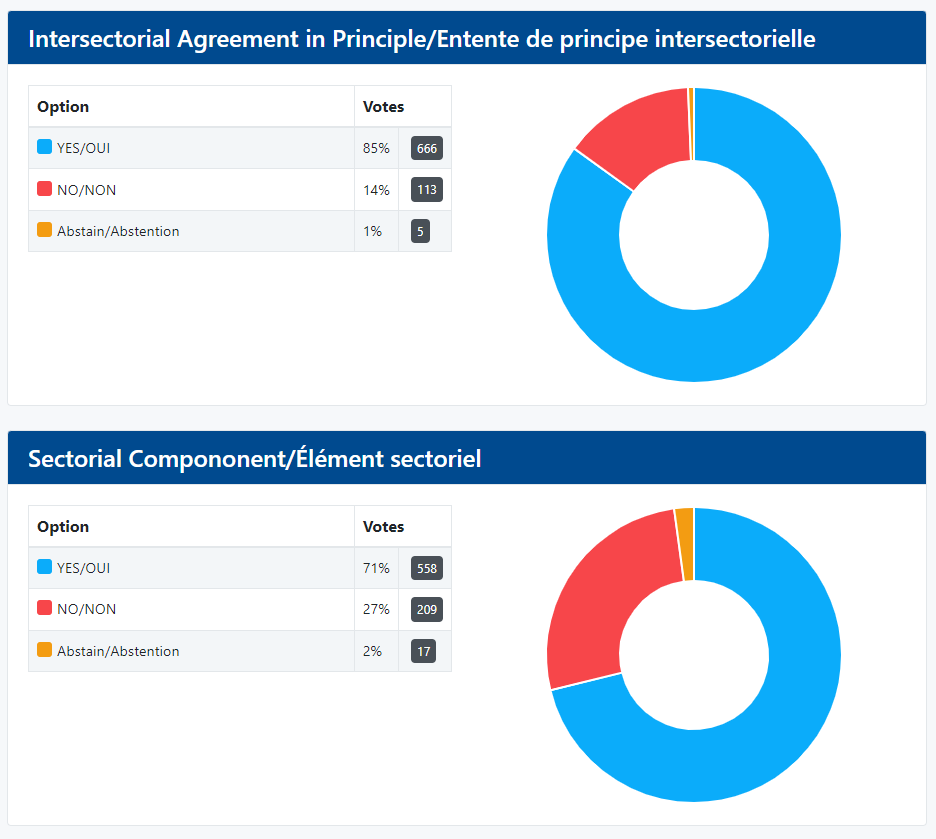
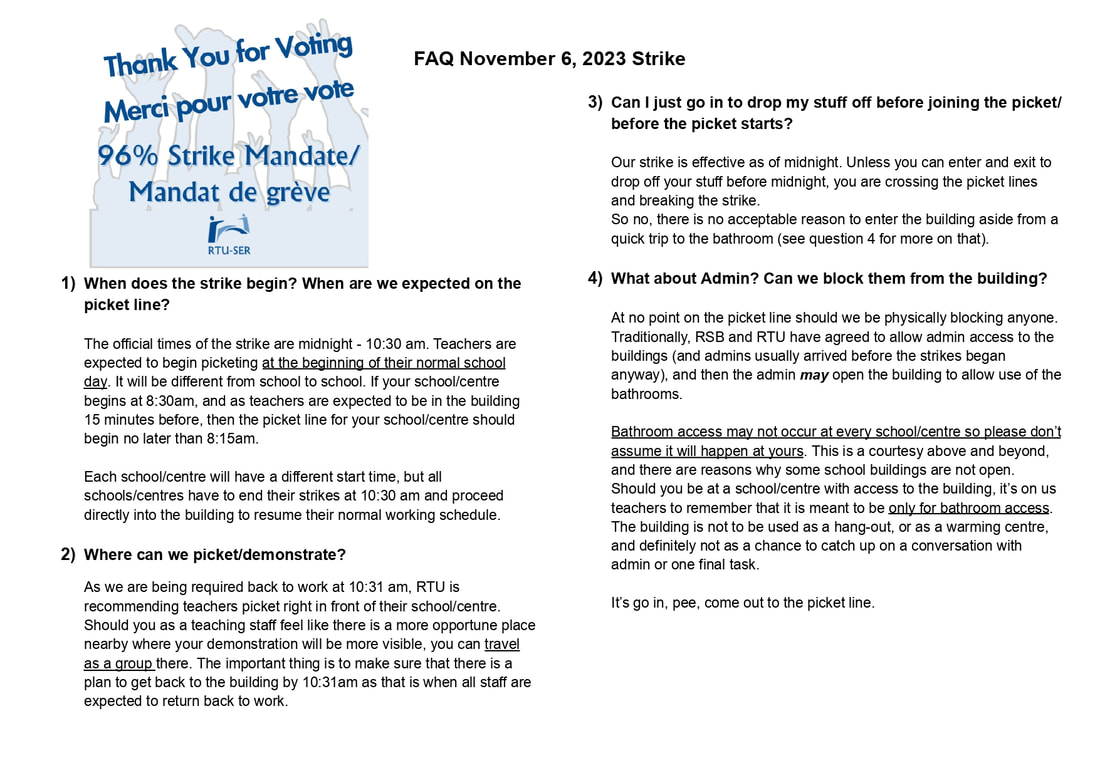
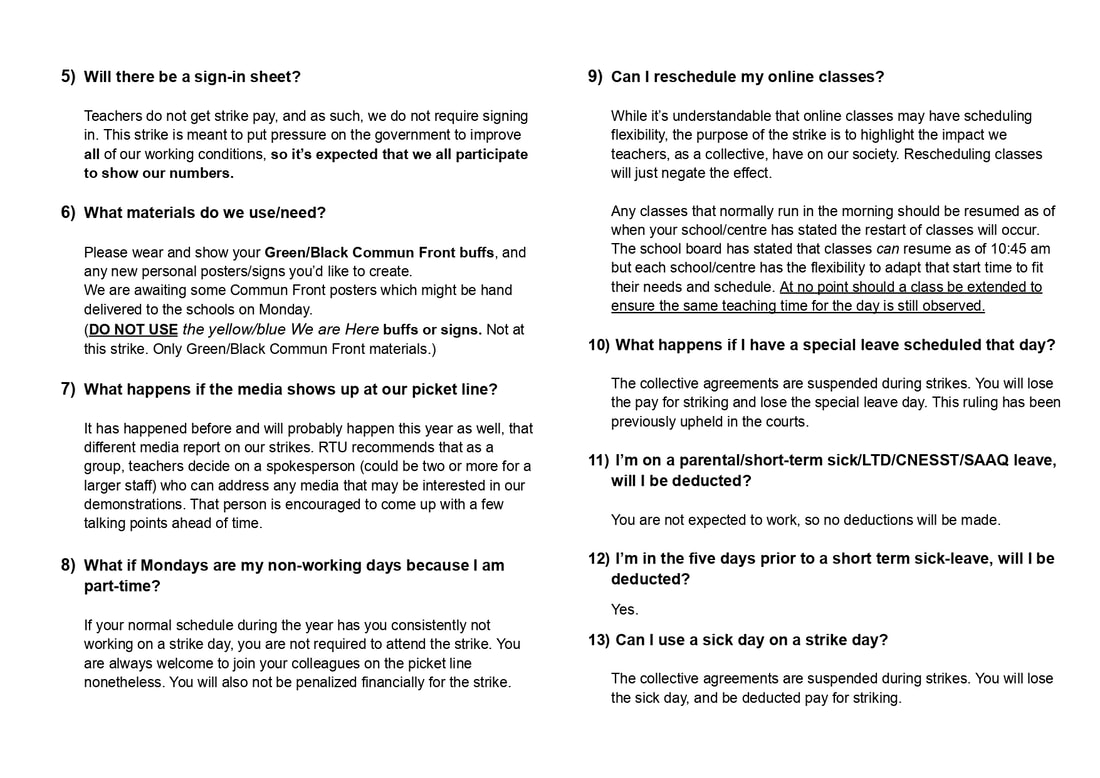
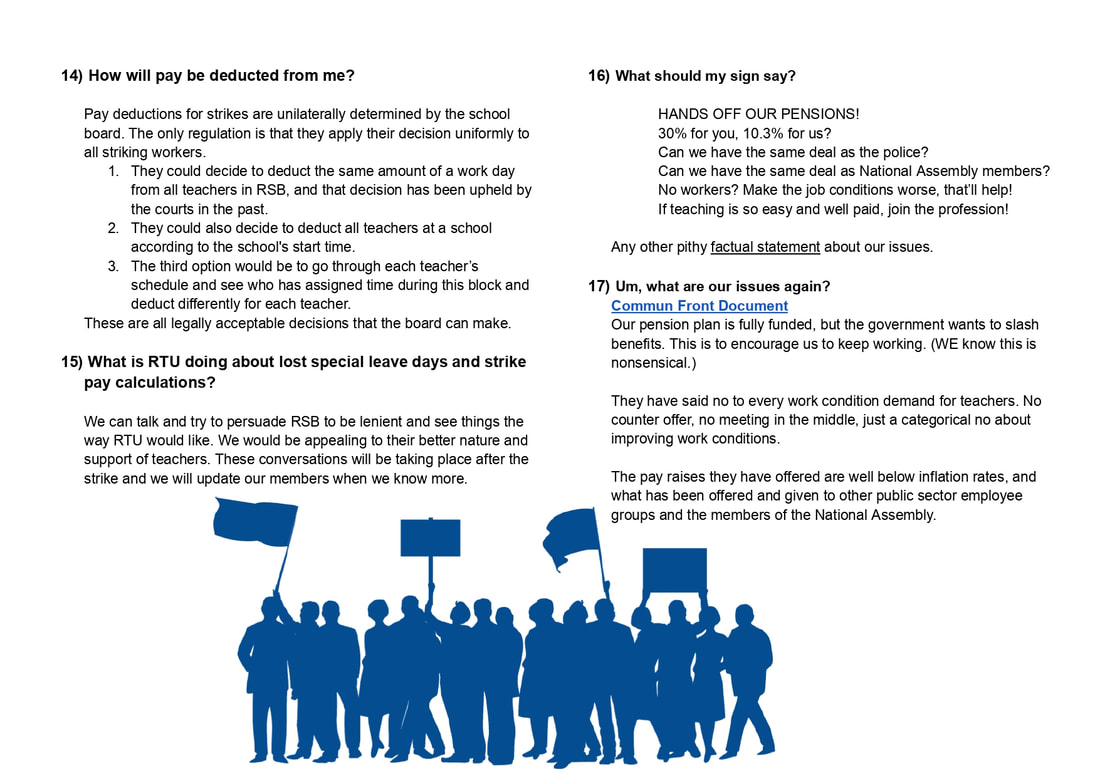
 RSS Feed
RSS Feed